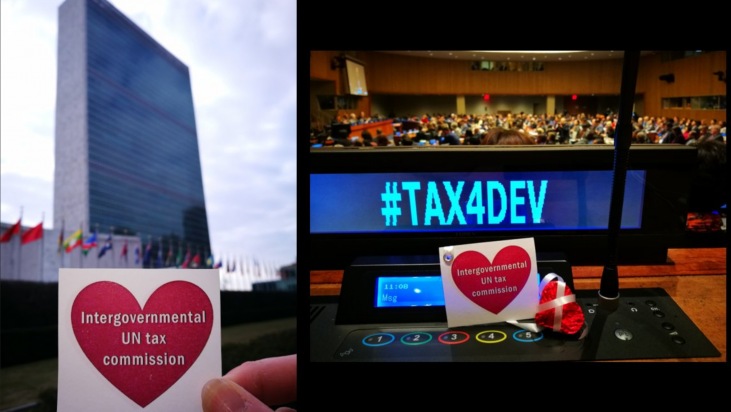The Global Alliance for Tax Justice just issued a Policy brief with its committed partner the South Centre, titled “Collaboration or Co-optation? A review of the Platform for Collaboration on Tax”.
Written by South Centre’s Manuel Montes and Pooja Rangaprasad, an independent researcher based in Dehli, India, it is published within the Policy Brief series of the South Centre and addresses the issues about the Platform for Collaboration on Tax (PCT), launched in April 2016 as “an effort to intensify cooperation on tax issues among the staff of OECD, IMF, World Bank and the Financing for Development office of the United Nations”.
“In a context, Montes and Rangaprasad say, where the UN membership is currently incapacitated from hosting intergovernmental negotiations on tax matters, the work of the Platform for Collaboration on Tax – a body made up of secretariat staff from the OECD, IMF, the World Bank and United Nations – needs closer scrutiny”.
The authors also note that “PCT statements have taken positions on issues where no UN agreement has been reached, including where a majority of the UN membership has expressed a different position”. “Not surprisingly, most UN Member States disagree. The Group of 77 and China, a group of 134 developing countries, continues to highlight the lack of progress on tax cooperation, including at the recent Financing for Development (FfD) Conference in April 20189. The Ad- dis Ababa Action Agenda stresses that “efforts in inter- national tax cooperation should be universal in approach and scope…”, though developed countries continue to block the very mechanism that would ensure implementation of this commitment – establishing a universal, intergovernmental tax commission under the auspices of the UN”.
“Collaboration between the four secretariats in the PCT, the brief explains, could be productive but these activities only pay off when their technical outcomes feed into a transparent intergovernmental negotiation process where all governments are at the table to make decisions”.
“In international tax negotiations, there is a need to hold OECD countries to the principles they loudly espouse at the global level: democracy and transparency – Montes and Rangaprasad outline and they add “It is in the interest of all countries, developed and developing, to work together in a UN-based negotiation process that is universal, inclusive, transparent and with a more ambitious agenda and mandate to address the fundamental issues in the international tax system”.
You can read the full Policy Brief and its recommendations here.
